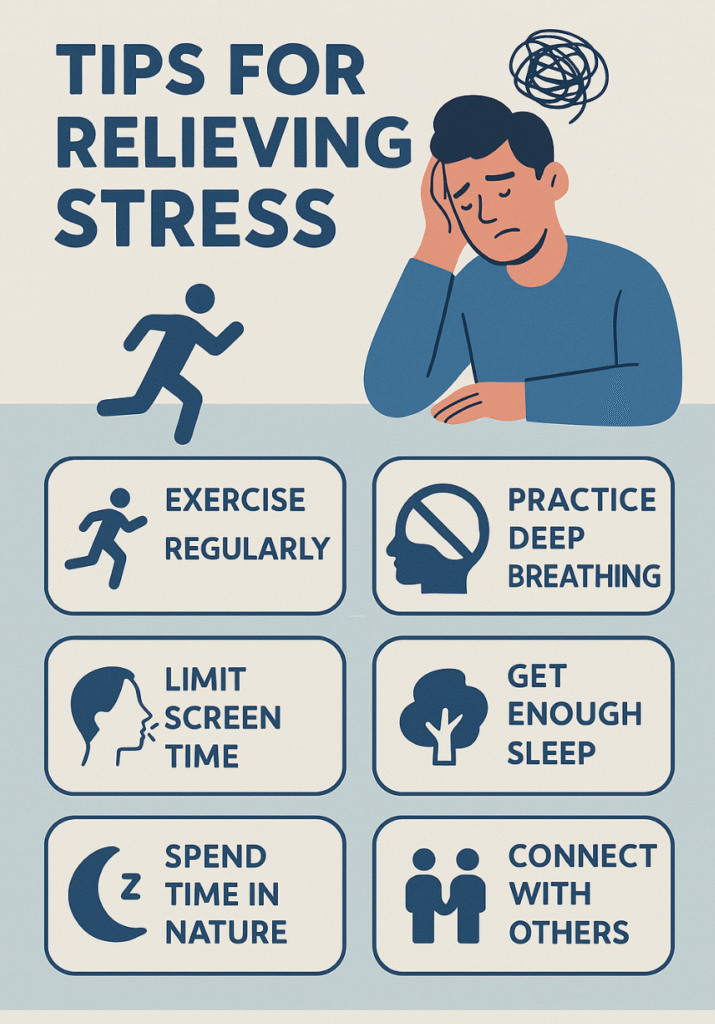Stress is an unavoidable part of daily life, but when left unmanaged, it can negatively affect both mental and physical health. Chronic stress contributes to issues like high blood pressure, weakened immunity, insomnia, and anxiety. Fortunately, evidence-based strategies can help individuals build resilience and maintain a healthier, more balanced lifestyle.
The Science of Stress
When faced with stress, the body releases hormones such as cortisol and adrenaline, triggering the “fight or flight” response. While beneficial in emergencies, long-term activation of this system can disrupt normal body functions and increase the risk of chronic illness. Managing stress effectively is essential for maintaining long-term health and emotional stability (source).
Practical Stress Relief Strategies
- Exercise Regularly
Physical activity boosts endorphins, the body’s natural mood enhancers. Even 30 minutes of moderate exercise such as walking, jogging, or cycling can significantly lower stress levels. - Practice Deep Breathing
Techniques like diaphragmatic breathing or mindfulness meditation reduce cortisol levels and calm the nervous system. Studies in Frontiers in Psychology highlight the effectiveness of breathing exercises in lowering anxiety (source). - Limit Screen Time
Excessive exposure to digital screens, especially before bedtime, increases stress and disrupts sleep patterns. Setting boundaries for technology use supports mental clarity. - Get Enough Sleep
Sleep is essential for emotional regulation and stress recovery. Experts recommend 7–9 hours of restful sleep each night for optimal health. - Spend Time in Nature
Green spaces reduce stress, improve mood, and lower blood pressure. Nature therapy, or “forest bathing,” has become a popular way to reset the mind and body. - Connect with Others
Social support is one of the strongest buffers against stress. Talking with family, friends, or joining a community can provide emotional relief and perspective.
Long-Term Benefits of Stress Management
Adopting these practices leads to:
- Lower risk of heart disease and hypertension
- Improved focus and productivity
- Stronger immune function
- Enhanced mood and emotional resilience
- Greater life satisfaction
Stress management should be considered an essential aspect of self-care, not just an occasional practice.
Read also: Ginseng for Oxidative Stress Support: Evidence-Based Benefits, Mechanisms, and Safe Use
🇰🇷 Premium Korean Ginseng Online Shop







